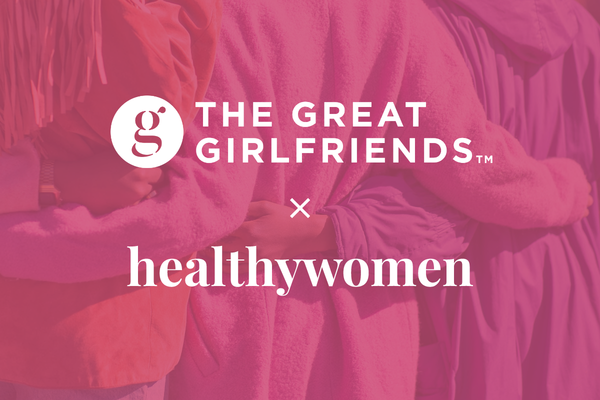You turn on your computer and head to Google. You type: Why is my urine green? What does croup sound like? What is the difference between a cold and the flu? When you want to know about a health condition, it's common to turn to Google.
Google recently released its top 10 most-searched health-related questions on its search engine in 2019. The list was based on search terms collected from January to early December. Here is what you Googled this year, plus some answers to help you out.
1. How to lower blood pressure
Blood pressure is the amount of force your blood exerts against the walls of your arteries. Normal blood pressure effectively and harmlessly pushes the blood from your heart to your body's organs and muscles so they can receive the oxygen and nutrients they need. Blood pressure rises and falls during the day. When blood pressure stays elevated over time, however, it's called high blood pressure or hypertension. According to the American Heart Association, about 85.7 million Americans have high blood pressure.
Hypertension can occur in both children and adults, but it's more common in adults, particularly African Americans and the elderly. People with other conditions such as diabetes and kidney disease are likely to become hypertensive. Being overweight, drinking alcohol excessively and taking oral contraceptives may also increase blood pressure.
Dietary and lifestyle changes may help you control high blood pressure. If you have mild hypertension, you may be able to lower your blood pressure by reducing the amount of sodium in your diet; reducing fat intake by eating a diet high in fruits, vegetables and low-fat dairy (such as the DASH diet); and lowering alcohol consumption. If you're overweight, losing weight may reduce your blood pressure. Increasing your physical activity, even if you don't lose weight, can also reduce blood pressure.
For some people, lifestyle changes aren't enough to lower blood pressure. Luckily, high blood pressure can be treated with long-term medication. Commonly prescribed drugs include diuretics, beta blockers, angiotensin-converting enzyme inhibitors (ACE inhibitors), angiotensin II receptor blockers (ARBs), direct renin inhibitors (DRIs), calcium channel blockers (CCBs), vasodilators, alpha-beta blockers, central-acting agents and alpha blockers. Because most hypertension cases are incurable, treatment generally must be done for life to prevent blood pressure from rising again.
Learn more:
Know Your Blood Pressure Numbers
What is High Blood Pressure
2. What is keto?
It seems like you can't turn anywhere without hearing about the keto diet. From meteorologist Al Roker to celebrity Kourtney Kardashian, this high-fat, low-carb diet has taken Hollywood and America by storm. But the keto diet does hold its share of controversy, with people like celebrity trainer Jillian Michaels opposing it.
The standard keto (ketogenic) diet is high in fat (75 percent), moderate in protein (20 percent) and low in carbs (5 percent). Since you're reducing your carb intake, your body needs to find a new source of energy. So, the diet forces the body to burn its own fat. (Ketones are the molecules formed by the breakdown of stored fat.) When you're following a carb-restricted diet, you deplete the glycogen stores (energy) from your muscles. So, your body is forced to convert fat stores to ketone bodies as fuel source.
Skip starchy veggies like corn, potatoes and winter squash (like acorn, butternut and pumpkin); they're too high in carbs. Pass on low-fat milk, beans, rice, pasta, bread and most fruits. Instead, indulge in cherry tomatoes, avocados, cauliflower, asparagus, peppers and zucchini and summer squash. Enjoy leafy veggies like kale, spinach, collards, arugula and watercress. Befriend eggs, fatty fish (salmon, tuna, mackerel), meat (steak, ham, sausage, chicken, turkey), and nuts and seeds (almonds, walnuts, pumpkin seeds). Yes, you can eat bacon on this diet but don't fixate on it.
Learn more:
What is the Keto Diet
In Support of the Keto Diet
3. How to get rid of hiccups
We've all had hiccups at some point. Though they usually disappear on their own within a few minutes, they can be annoying. You can try some home remedies, although little proof exists that any of them really work. A few ideas include:
- Quickly drink a glass of water.
- Pull on your tongue.
- Hold your breath. Then swallow three times.
- Breathe into a paper bag.
- Swallow a teaspoon of sugar.
- Gargle with water.
If your hiccups last more than 2 days or are disrupting eating, breathing, or sleeping, contact your doctor. You may be able to take medications. Or tests can be run to see why your hiccups aren't going away.
Talk to your doctor immediately if you have hiccups as well as fever, shortness of breath, vomiting, stomach pain or you're coughing up blood.
4. How long does the flu last?
Watch out. The flu typically hits people like a fast-moving train with a rapid onset of symptoms like profound fatigue. Even getting out of bed is taxing. A flu can last a week or two. It usually causes a fever, headaches, chills and aching muscles and joints. If you have the flu, stay home to avoid spreading the virus. The flu may be contagious starting a day before symptoms appear until a week after becoming sick—possibly longer in children.
Learn more:
Can the Flu Shot Give You the Flu?
Getting Ready for Flu Season
Is It a Cold or the Flu?
5. What causes hiccups?
According to the Mayo Clinic, the most common triggers for hiccups that last less than 48 hours include:
- Drinking carbonated beverages
- Drinking too much alcohol
- Eating too much
- Excitement or emotional stress
- Sudden temperature changes
- Swallowing air with chewing gum or sucking on candy
6. What causes kidney stones?
Kidney stones are deposits, most often made of calcium, that form in the kidneys and can be painful to pass. Kidney stones are becoming more common, especially in women. Better diagnostic tools could be part of the reason for the increase in diagnoses.
The American Academy of Family Physicians says risk factors include:
- Drinking too little water.
- Having family members who have had kidney stones.
- Eating a low-fiber, high-salt and high-protein diet.
- Getting insufficient exercise.
- Taking certain medications.
- Being male.
- Being ages 20 to 70.
To help prevent kidney stones, the American Academy of Family Physicians recommends:
- Drinking plenty of fluids. Aim for at least 2 liters per day; water is the best choice.
- Limiting sodium to no more than 1,500 milligrams daily.
- Restricting meat to two servings per day, of no more than 6 ounces to 8 ounces each.
- Talking to your doctor about seeing a specialist or taking a medication to help prevent recurring kidney stones.
Learn more:
How to Avoid Getting Kidney Stones
More Kidney Stones Found in Women
Prevent Kidney Stones From Happening to You
7. What is HPV?
Human papillomavirus (HPV) is a sexually transmitted virus skin cell virus with more than 100 identified types. About 79 million people in the United States are already infected with HPV. Around 14 million new infections with HPV occur every year. About half of those are teens and young adults. Sometimes these infections heal on their own and sometimes they don't. HPV is responsible for more than 33,000 cancers each year—20,000 in women and 13,000 in men.
Learn more
What is HPV
Is the HPV Shot Safe?
8. How to lower cholesterol
If you have high cholesterol, you and your health care professional will determine the type of treatment that is most appropriate for you and your lifestyle.
Certain foods can be part of the plan to improve your numbers, to both lower "bad" low-density lipoprotein (LDL) cholesterol and raise your "good" high-density lipoprotein (HDL).
Choose foods with soluble fiber, which draws cholesterol out of your body. Good sources are oats, oat bran, barley, beans, eggplant and okra. Apples, grapes, strawberries and citrus fruits are also good choices because of their pectin, a type of soluble fiber.
Next, go for foods with polyunsaturated fats. These include vegetable oils like canola, sunflower and safflower, as well as fatty fish like salmon and most seeds and nuts. Plant-based foods also contain plant sterols and stanols, which help prevent the body from absorbing cholesterol. Particularly good sources are Brussel sprouts, wheat germ, wheat bran, peanuts and almonds.
Completely avoid trans fats. The U.S. Food and Drug Administration banned its addition to foods in 2018. However, because of extensions granted to some manufacturers, certain items could be on store shelves until January 2021. Check ingredients on any packaged foods.
Several medications reduce cholesterol levels including statins, bile acid sequestrants (resins), niacin and fibrates. Before taking these or any other medications, talk to your health care professional about other conditions you have and medications you're taking.
Learn more:
What is Cholesterol
Why You Should Care About Cholesterol
Foods to Lower Your Cholesterol
9. How many calories should I eat a day?
A calorie is a unit that measures energy. Calories are usually used to measure the energy content of foods and beverages. An average woman needs to eat about 2,000 calories per day to maintain weight, and 1,500 calories to lose one pound of weight per week. However, this depends on numerous factors including age, height, current weight, activity levels and metabolic health.
Learn more:
Which Has More Calories? Fast Food or Fast Casual?
Cutting Calories Can Boost Your Sex Life and Your Sleep
10. How long does alcohol stay in your system?
Alcohol is predominantly broken down by the liver, which can metabolize roughly 1 standard drink per hour for men. Factors such as age, weight, gender and amount of food eaten can affect how fast the body can process alcohol. The rate of alcohol absorption can't be increased by sleeping or drinking water. According to the American Addiction Centers, alcohol can stay in your blood up to 6 hours; breath, urine and saliva for 12 to 24 hours; and hair for 90 days.
Learn more:
What to Know About Alcohol and Sleep
The Connection Between PMS and Alcohol







